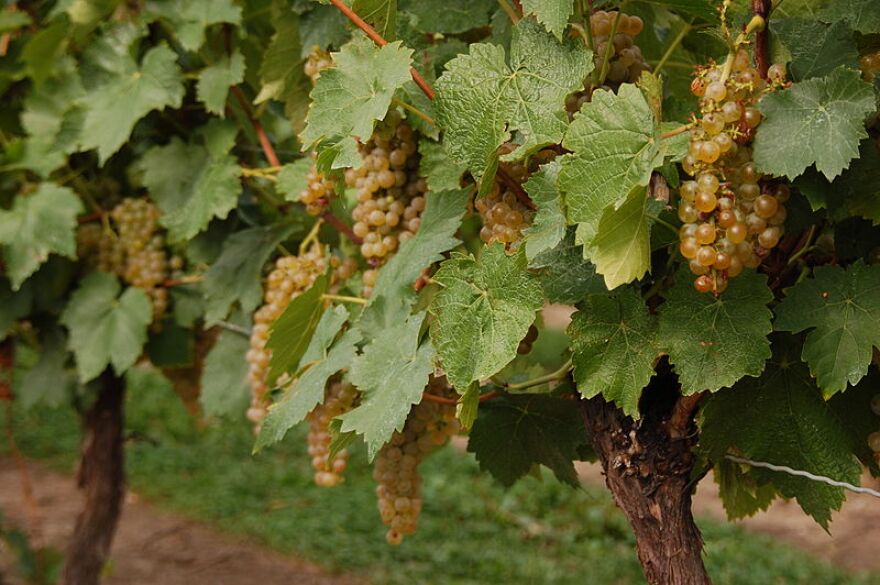http://cptv.vo.llnwd.net/o2/ypmwebcontent/Heather/Morning%20Edition%2011-06-2012.mp3
Connecticut boasts about 34 wineries, each making their own varieties of wine. State law requires wineries to make their wines with at least 25 percent juice made from Connecticut-grown grapes. But there are suspicions that some vintners are skirting that law, and that is making some growers who are complying with the law angry. Hartford Advocate senior staff writer Gregory Hladky broke the story, and he joins us by phone.
"The state Department of Consumer Protection has launched an investigation into all this," Hladky says. "There are reports that some few wineries just aren't following the 25 percent rule. There's also allegations that some wineries may be bringing in California wine and relabeling it as Connecticut wine. And that's obviously got some legitimate wine-growers furious."
Grapes are a challenge to grow in Connecticut, Hladky adds. The state also has lost a lot of good-quality agricultural land to development. "It's just a lot easier and less labor-intensive to have grapes shipped in from California, Chile, the Finger Lakes region in New York, and Long Island, than it is to try to grow here in Connecticut."
Hladky says the law was designed to give vineyards seven years to reach the 25 percent mark. But there's a loophole: a change in vineyard ownership restarts the seven-year clock. "If a winery's been there six or seven years, why should a change in ownership restart that clock?" Hladky says other vineyard owners are asking.
The state Liquor Control Commission, under the consumer protection department, has neither confirmed nor denied to Hladky that there is an investigation, but he says other state officials have confirmed an ongoing probe into the matter.




